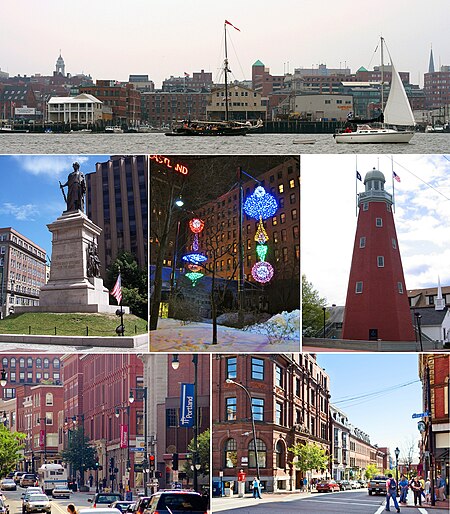Portland, Maine

Portland ( PORT-lənd) is a city in the U.S. state of Maine. It is the most populous city in the state and the seat of Cumberland County. Portland's population was 68,408 in April 2020. The Greater Portland metropolitan area has a population of approximately 550,000 people. Historically tied to commercial shipping, the marine economy, and light industry, Portland's economy in the 21st century relies mostly on the service sector. The Port of Portland is the second-largest tonnage seaport in the New England area as of 2019.The city seal depicts a phoenix rising from ashes, a reference to recovery from four devastating fires. Portland was named after the English Isle of Portland. In turn, the city of Portland, Oregon, was named after Portland, Maine. The word Portland is derived from the Old English word Portlanda, which means "land surrounding a harbor". The Greater Portland area has emerged as an important center for the creative economy, which is also bringing gentrification.
Excerpt from the Wikipedia article Portland, Maine (License: CC BY-SA 3.0, Authors, Images).Portland, Maine
Pearl Street, Portland
Geographical coordinates (GPS) Address Nearby Places Show on map
Geographical coordinates (GPS)
| Latitude | Longitude |
|---|---|
| N 43.66 ° | E -70.255 ° |
Address
Lincoln Park
Pearl Street
04101 Portland
Maine, United States
Open on Google Maps











